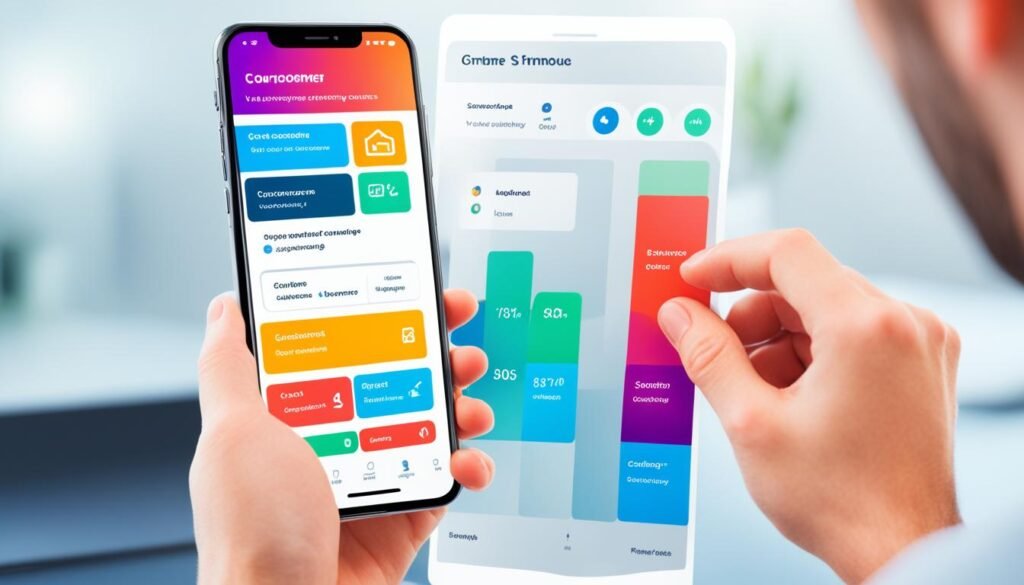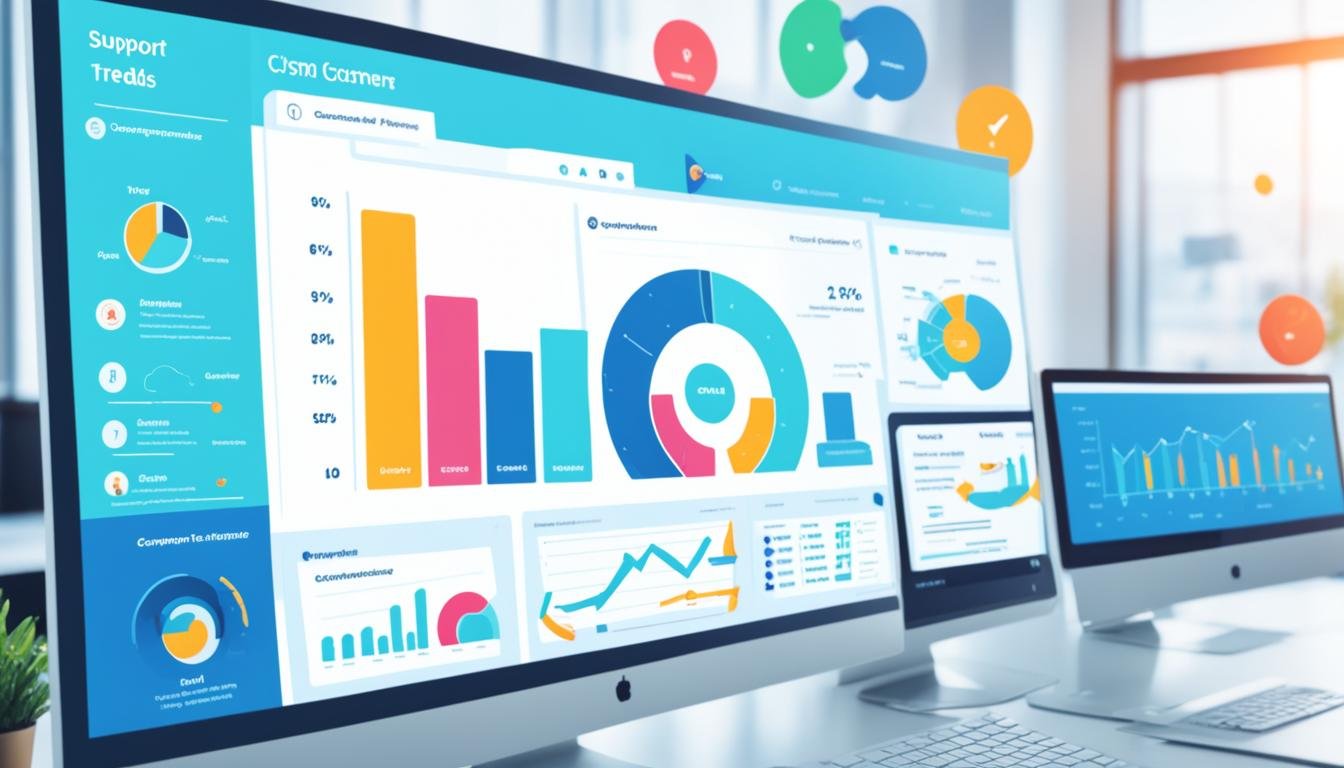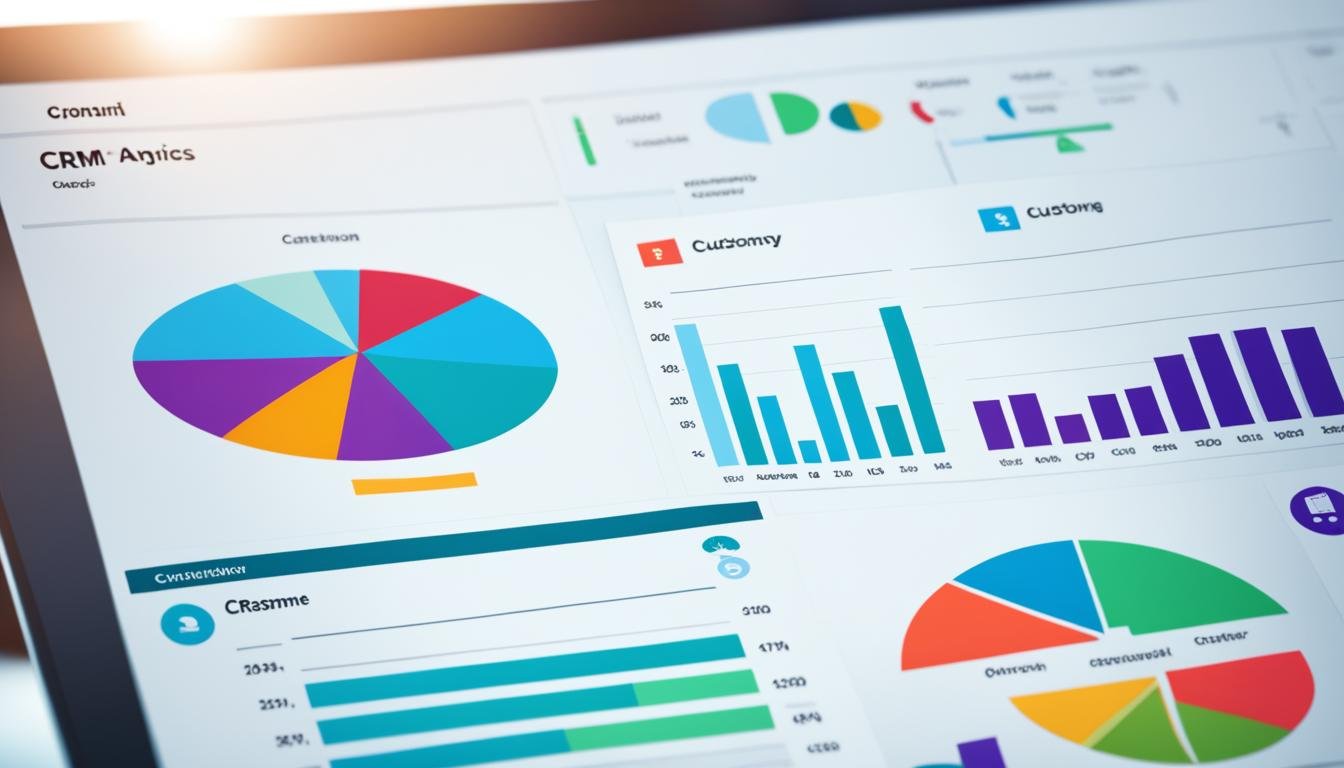Today, staying ahead in business is tough. CRM for Customer Support see many ads that show how brands can solve their problems. They have many choices for where to spend their money. They’ll stick with the brand that convinces them the most.
Getting a new customer is hard, but keeping the old ones is easier. This is true with the right tools like CRM software. Now, businesses can easily get customer data like who they are and what they buy.
With good customer retention strategies and CRM for Customer Support, brands can keep customers. This helps increase the Customer Lifetime Value (CLV).
Table of Contents
Understanding the Importance of CRM for Customer Support
As a business owner, you know that keeping customers is key to your growth and profits. Getting new customers is great, but keeping the ones you have is vital. Keeping customers helps keep your income steady and builds a loyal group of customers.
The Cost-Effectiveness of Retaining Existing Customers
Did you know it’s easier to sell to someone you already know? The chance of selling to a current customer is 60-70%, but only 5-7% to a new one. Happy customers buy more and often, which means more money for you. You also save money because you don’t have to spend as much to keep them coming back.
The Role of CRM in Fostering Customer Loyalty
CRM software is a big help in keeping customers happy. It lets you keep track of everything about your customers. This way, you can send them special emails, check how they feel, and offer them deals just for them. Using CRM helps you build strong bonds with your customers, making them more likely to stay with you.
| Industry | Average Customer Retention Rate (2020) |
|---|---|
| Retail | 63% |
| Banking | 75% |
| Telecom | 78% |
| IT | 81% |
| Insurance | 83% |
| Professional services | 84% |
| Media | 84% |
Remember, just a 5% increase in keeping customers can really boost your sales. By focusing on customer retention strategies and using CRM, you can increase your customer lifetime value. This means your business will do well for a long time.

“Acquiring a new customer is 6 to 7 times more expensive than retaining an existing customer.”
CRM for Customer Support: Leveraging Data for Exceptional Service
CRM for Customer Support software is key for businesses wanting top-notch customer support. It uses customer data to boost service quality. This leads to quick problem solving and a personal touch that keeps customers coming back.
Tracking Customer Interactions and Preferences
CRM tools help teams keep track of all chats and emails with customers. This history shows what customers like and what they don’t. It helps businesses spot common issues and plan better support.
Enabling Proactive Issue Resolution
CRM makes teams proactive in solving problems. It uses reports and analytics to spot trends and fix issues before they start. This makes customers happier and helps businesses save money.
CRM also works well with other tools like knowledge bases and self-help sites. This makes solving problems faster and more precise. By using customer data, teams can offer solutions that really help, building trust with customers.

“96% of customers said they would continue engaging with a company if they apologized and rectified themselves.”
CRM changes customer data into useful insights. This helps businesses give a great customer experience. By using CRM, companies can make support better, solve problems faster, and keep strong customer ties.
Personalize Customer Interactions with CRM
Personalization is key to strong customer engagement and loyalty. CRM systems help businesses tailor their interactions to each customer’s unique needs and likes.
Tailoring Communications Based on Customer Data
CRM systems gather lots of customer info, like contact details and what they’ve bought before. This info helps make customer communications more personal. For example, sending happy birthday messages or product tips based on what they’ve bought.
AI and natural language processing can even make responses fit the customer’s tone and what they want.
Increasing Customer Engagement and Loyalty
Personalization through CRM boosts customer engagement and loyalty. CRM lets businesses give personalized support and use gamification to get customers more involved with the brand. Plus, giving customers content and info that matters to them builds deeper connections and makes them feel valued.
Using CRM to make customer interactions personal can greatly improve the customer experience. This leads to happier customers, more loyalty, and growth for the business.
“Personalization can lead to enhanced customer engagement, potentially resulting in higher customer satisfaction and increased sales.”

| Metric | Impact of Personalization |
|---|---|
| Customer Churn Rate | Lower churn rates, indicating improved customer retention |
| Conversion Rates | Significant boost in conversion rates with customized product recommendations |
| Customer Satisfaction | Higher customer satisfaction levels with personalized marketing campaigns |
Implement a Customer Loyalty Program
Adding a strong customer loyalty program can change the game for your business. It rewards repeat customers and keeps them coming back. CRM systems are great for managing these programs by tracking customer purchases and interactions.
Think about a tiered loyalty program with more rewards for more engagement and spending. Use fun elements like Amazon India’s daily quizzes and Spin-to-Win games to keep users interested. Referral programs, like Uber’s in India, can also help keep customers coming back and bring in new ones.
A well-thought-out customer loyalty program can really help keep customers around. It can also make loyal customers more likely to buy more and improve your profits. By using CRM data, you can offer personalized experiences that build real loyalty and turn happy customers into brand fans.




One Comment on “Using CRM for Customer Support to Enhance and Retention 2024”